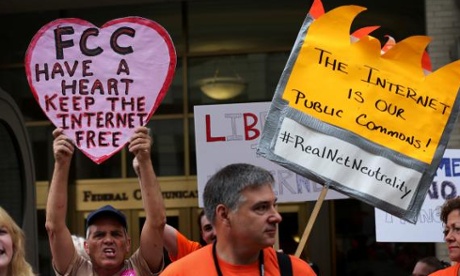
Two of the world’s biggest porn sites have promised “in-your-face” support for next week’s “battle for the net” protest against proposals by US regulators to create online fast lanes for some companies.
Pornhub and Redtube, two of the world’s largest pornography sites, on Friday announced they would join the “go-slow” day of action planned for 10 September.
The porn giants join others including Reddit, Mozilla and Etsy in protest against plans by the Federal Communication Commission (FCC) to allow cable and telecoms firms to create fast lanes for some customers.
Critics charge such a move would end “net neutrality” — the principle that all traffic is equal on the internet — and lead to the stifling of competition and innovation online.
“We’ll be displaying an official widget from battleforthenet.com. We won’t be shutting down or streaming your porn slower. There will be a big in your face message that users will need to close. We hope to reach around 50 million people on Sept 10th,” a Pornhub spokeswoman wrote on Reddit.
Both Pornhub and Redtube are owned by Mindgeek, a Luxembourg-based conglomerate that claims to be one of the top five bandwidth consumers in the world, generating 1.7bn visits per month.
Most of the world’s largest tech companies, including Amazon, Facebook, Google and Netflix, have come out against proposals being discussed by the FCC to create fast lanes for higher-paying companies. But the top tier firms have yet to sign on for next week’s protest.
Sites participating in the slowdown will display prominent messages including an infinitely spinning “site loading” icon – the so-called “spinning wheel of death” – to symbolise what surfing the web could be like without net neutrality.
The alerts will direct the sites’ users to a site with contacts for policymakers in Washington so they can register their support for net neutrality.
A similar email and telephone campaign at the end of the FCC’s public consultation period on the proposed changes led to the regulator’s systems crashing. The crash followed an attack on its net neutrality proposals by comedian John Oliver.
The FCC is also considering reclassifying internet service as a telecommunications service under Title II of the Telecommunications Act. That move would hand the FCC far more power over the industry and is being vigorously contested by the cable and telecoms companies.
The FCC is expected to issue a final ruling as soon as the end of the year.

